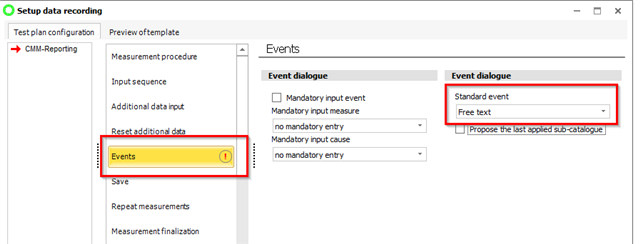When assigning events after accepting or rejecting data I would like for the operator to have the ability to add remarks if needed. I see the option in the event box, but we are unable to type anything here. I can't seem to find this in help files on how to turn on or allow for this. Any thoughts on what I'm missing?
Your Products have been synced, click here to refresh

